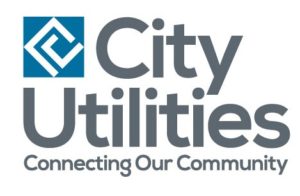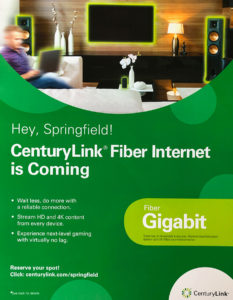City Utilities
In August 2019, TBG client – City Utilities (CU), announced plans to expand its fiber optic network by over 1,000 route miles to enable affordable high-speed broadband services to all of Springfield. The fiber will be made available for lease to private broadband providers with CenturyLink, Inc. (NYSE: CTL) as the first customer, bringing its fiber internet service to every home and business in Springfield.
“Access to reliable high-speed broadband services drives economic development and is essential to every community,” said Dean Thompson, City Utilities Associate General Manager for Economic Development and SpringNet. “Working with private industry to make the best use of public infrastructure minimizes work in the rights-of-way and helps to ensure all areas of our community have access to affordable broadband choices.”
“We’re pleased to be the first provider to contract with City Utilities in this fiber network expansion, bringing Fiber Gigabit with symmetrical upload and download speeds up to 940 megabits per second to Springfield,” said Chris Denzin, CenturyLink Vice President of Consumer Sales. “Springfield residents and businesses need fiber to efficiently support numerous internet connections for cloud-based applications, smart home devices, education, healthcare, video streaming and gaming. CenturyLink fiber internet service can provide the capacity subscribers need, now and into the future.”
The monumental initiative was made possible by the implementation of an industry-shifting new service Model developed and refined by The Broadband Group that enables a Utility to make a large investment to upgrade its fiber optic infrastructure without the burden of raising rates. In its work with City Utilities and other utility organizations throughout the country, The Broadband Group provides strategic financial planning, network design, regulatory analysis and construction management oversight throughout the lifespan of a communications infrastructure project. The Broadband Group also facilitates the leasing of a utility’s excess dark fiber capacity to qualified Broadband Internet Service Providers. This proves to be mutually beneficial for all parties. The utility’s investment to make needed improvements to its infrastructure is reimbursed over time by an Anchor Tenant’s lease payments. Changing the status quo, competition within the market is then stimulated by making it financially feasible for Telecommunications companies to enter new markets.



